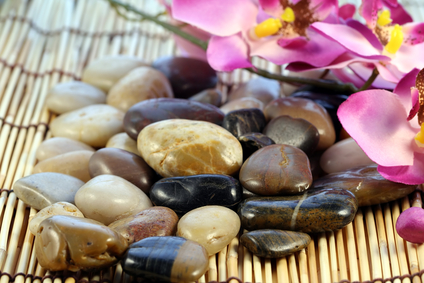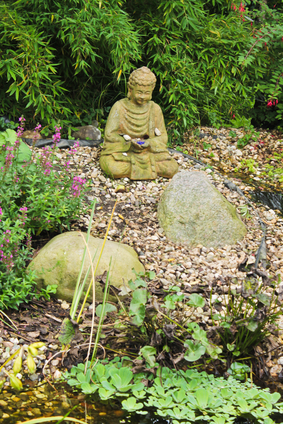Still flashing after all these years…
 Oy! I’ve got some rather troubling news to share: your hot flashes may continue for up to 9 years after menopause begins and in some women, they may continue past the 10 year point.
Oy! I’ve got some rather troubling news to share: your hot flashes may continue for up to 9 years after menopause begins and in some women, they may continue past the 10 year point.
Findings from the Penn Ovarian Study suggest that in women with moderate to severe hot flashes, almost half will see their flashes peak during the two years after menstruation stops and then they will continue to decline slowly to premeonpausal levels. Overall, in the 255 women studied, hot flashes lasted a mean 4.6 years among all women regardless of severity, while women with the worst symptoms had hot flashes that lasted nearly two times longer than their peers.
In this group of women, important factors influencing hot flashes included FSH levels before the final menstrual period, body mass index, and anxiety. And, not surprisingly, when the total duration of hot flashes was considered, including the time in perimenopause, African-American women had longer mean total duration of hot flashes (9.5 years) compared to white women. Previous studies have also shown that race is a factor when it comes to menopausal symptom severity and duration.
The study lasted 16 years and the researchers say that it’s not clear how the numbers would have changed had the women been studied longer. Additionally, current hormone users and women who went into early menopause due to surgery were not included, meaning that the findings might not be generalizable to a pool of women beyond healthy African-American and white women with untreated symptoms.
Still, the findings show that women can expect their hot flashes to last an average of four to five years after their final menstrual period. This emphasizes the importance of preparation and establishing a relationship with a knowledgeable health practitioner so that regimens and strategies can be modified accordingly throughout the pause… The more you know!
Read More
Guyside: Who says prevention is worse than the cure?!
Hey Guyz…
My partner in crime, Bob LeDrew is off paving his own preventive highway. He’ll be back next week with another edition of Guyside. Meanwhile?
Just a thought to ponder on a Wednesday….
Read More
Empowering Myself Before & After Surgery: Guest Post by Cyma Shapiro
Did you catch last Friday’s post about reaching deep to find the strength to ask for help? Cyma Shapiro, author of The Zen of Midlife Mothering, did and sent me a wonderful post about her own surgical experience in solidarity. Here it is, in its entirety; I hope that it inspires you as much as it did me.
I’ve been very lucky. In my lifetime, I’ve enjoyed good health, good friends and not a lot of unforeseen external circumstances. However, this recently changed when I needed surgery.
It’s difficult to explain the (many) steps I took leading up to this decision, but as insignificant as it might have been, how monumental it all felt. And, while there are far more people struggling with far more serious illnesses, my recent foot surgery was so pivotal in my life that I’d like to share my short journey with you.
As an avid and passionate proponent of Eastern modalities, I’ve spent an entire lifetime focusing on healthy eating, healthy living and healthy practices. I believed that in doing all of this, I’d be spared more serious complications. So, when I broke my foot last year, I felt as if my world had shattered. I was literally stopped dead in my tracks – a difficult journey for someone as active as I am (rock climb, bike, hike, etc.). I had no choice but to heed the call. And, I needed to do just what the doctor ordered: stop.
So, for six months, I tried to smell the roses: I reflected on the state of my life and of my “mid-age.” I thought long and hard about the things that I did and didn’t accomplish, and of the….well….mortality of it all. Most importantly, I realized that my apparently well-ordered life was certainly not that – that many more things (than I’d ever considered or thought possible) were simply out of my control.
To me, having surgery felt like death – not only for the potential perils and outcome, but for what the circumstances suggested – that I simply was no longer as immortal as I believed.
And so, in counting down the months, then weeks, and then days before the surgery, I fervently kept up every practice I knew – praying, breathing, exercising, meditating, reading, etc. And, as the weeks became days, I nearly lay myself prostrate in asking for help, guidance and support during this period. I also did one more thing: I asked my closest friends to pray for me and send light and love.
Nearly immediately, I felt an energy shift in my body. And, as much as the panic threatened to overtake me, the internal support I felt helped propel me forward.
On the day of surgery, I asked for help from the support nurses (requesting that they hold my hand and pray for me) and told the doctor that I had prayed for him. (I had, asking for guidance and love from the support team. To me, we were all in this together – I’d put a photo of him up on my computer weeks earlier.)
Today, I am healing. I am also doing fine. However, I have also changed – in my feelings about Western medicine, about how a higher power is truly in charge, in learning how tough and resilient I really am (despite my overwhelming fears otherwise), and how the power of others can support you in your life.
While I realize that some of you may scoff at this, believing this to be a minor blip in the journey of life, I believe that the success I’ve experienced here will translate into greater successes, should more serious things arise in my life. And, for this deeper understanding and in climbing another rung of life’s many twists and turns, I am so very grateful.
About Cyma…
Cyma Shapiro, 56, is the writer/creator of NURTURE: Stories of New Midlife Mothers (www.MidlifeMothers.org), the first art gallery show dedicated to women choosing motherhood over 40 (now traveling North America), and the subsequent blogsite, www.MotheringintheMiddle.com, for all-things midlife mothers. A speaker and writer for several sites including Huffington Post, whose work has been featured on NPR and on Psychology Today (online), Cyma is passionate about supporting women who choose later motherhood, and giving them a face, voice, and forum. She is the mother of 9 and 11-year-old children and 28 and 30-year-old stepchildren. She recently published The Zen of Midlife Mothering (essays from MotheringintheMiddle.com) – the only anthology on the market by and for midlife mothers (and fathers).
Read More
Help!
If you are as independent as I am, asking for help might be alien to you. Personally, I am getting better at it. But I still have the inclination to try to do something first on my own rather than rely on someone else to do for me, even if it may be detrimental.
I am having surgery today. I’ve been in significant discomfort for weeks now and that discomfort has been increasing daily. And I was going to drive myself to the procedure until my friends stepped in and took over. Don’t you think that I would realize how silly that idea was?
So, while I spend today contemplating the ‘thank goodness, folks who love me stepped in,” I challenge you to ask yourselves the following question:
When was the last time you asked for help? Better yet, how easily do you ask for and receive help?
Reading Karen Rosenthal Hilsberg’s “Lessons in Living” and her struggle to make sense of a life unraveled as her husband dies, I can’t help but reflect on a close friend who was ill several years ago. Despite a ‘take no prisoners’ attitude, he had trouble acknowledging the seriousness of his condition and even more trouble asking for support. Quite honestly, he doesn’t do too well in that department and neither do I. However, like him, I readily offer assistance to those I love and care about, whenever I can.
So, why the divide between offering and taking?
Hilsberg writes that “what I learned during this intense time of life was profound. I learned to ask for help from others.” Utilizing the mindfulness practice of the Zen Master, Buddhist monk and scholar Thich Nhat Hanh and the Buddhist Master Thich Phuoc Tinh, she says that she discovered that asking for help really wasn’t much different than providing it, that the helper and ‘helpee’ were intertwined, unable to exist without the other. By allowing assistance, she was able to provide others who cared about her and her family an opportunity to “be of service and to practice generosity” and in doing so, make a shift away trying to do everything on her own. Most importantly, by reflecting on how much she personally enjoyed being of service when loved ones needed her, she was able to accept how appropriate and okay it was to actually ask for help from others — to allow them to “do” as much as she did. The result? Her “wellbeing improved as [she] felt [her] burden shared by many hands.”
As caretakers, many women often do not adapt well to being on the “receiving end.” And yet, most of us are aware of the importance of social ties, friendships and support to our health and wellbeing, particularly as we age. So why do we find it so difficult to ask for and receive help? How do we acknowledge that be cared for does not equate to losing power or control but actually improves outlook, wellbeing, and ability to deal with any challenges that we might be facing, that allowing others to “do” empowers and does not ‘de-power?’ Is it fear of refusal? Or fear of letting go?
Mastering the art of asking for help is difficult. However, it behooves us to do so, not only for our wellbeing but for the wellbeing of those around us who wish to help.
My friend deserved the kind of care that he has provided to others in his life for most of his life.
Guess what?
So do I.
And so do you.
Balance. I have it. Sometimes.
 In my 20s, I used to work as studio director for a radio morning show. Often, I’d stay up, watch Late Night with David Letterman, and then hit the sack, only to get up and hit the road to be at the station at 5, bright-eyed and bushy-tailed with coffee for the gang. A little later on, I worked at a 24-hour news network, and my shifts were almost always 3 a.m.-11 a.m. or 4 a.m.-noon. I’d come home, do some other work, my partner would come home, and I’d almost always be in bed after 10 p.m. Five hours sleep was fine. In an magazine job, all-nighters were common as we got to production.
In my 20s, I used to work as studio director for a radio morning show. Often, I’d stay up, watch Late Night with David Letterman, and then hit the sack, only to get up and hit the road to be at the station at 5, bright-eyed and bushy-tailed with coffee for the gang. A little later on, I worked at a 24-hour news network, and my shifts were almost always 3 a.m.-11 a.m. or 4 a.m.-noon. I’d come home, do some other work, my partner would come home, and I’d almost always be in bed after 10 p.m. Five hours sleep was fine. In an magazine job, all-nighters were common as we got to production.
If I tried that now, I would implode in a week. And that isn’t always the easiest thing for a man to admit. We’re supposed to be invulnerable, aren’t we? One of the things I’ve noticed as the years have gone on is I can still be as intense as I was in the past (I think!), but that I can’t maintain that level of intensity for same length of time. I attend a music-industry conference each year where part of the deal is attending music sessions that go on until about four in the morning. I can do that, but inevitably there’s a post-conference crash.
Combine the fact that my “energy well” isn’t as deep as it used to be with the lifestyle of a self-employed consultant, where the pace can sometimes oscillate between frenetic and … what now? and you have a recipe for stress.
I have a few things I try to do to combat that stress. I try to keep my sleep habits as regular as I can. I’m lucky in that I rarely have insomnia, so it’s easy for me to stay rested most of the time. That keeps the energy supply high.
If there’s a frenetic period on the horizon, I will try to book downtime to recharge my batteries after the urgency subsides. Better to book it and keep it for myself than to carry on as if I didn’t just complete a herculean task and end up crashing.
And I try to keep my regular appointments sacred. Yoga class, exercise, and the like can sometimes feel like a distraction that I “should” skip “just this once.” But that has an impact down the road. Short-term gain for long-term pain.
It’s not easy to stay energized all the time. But if you can learn — even attempt — to manage yourself a little better, you can perform at a higher level all the time, rather than some roller-coaster cycle of sprinting, and then collapsing.
What are your tips for managing energy levels? Tell me in the comments.
Read More








